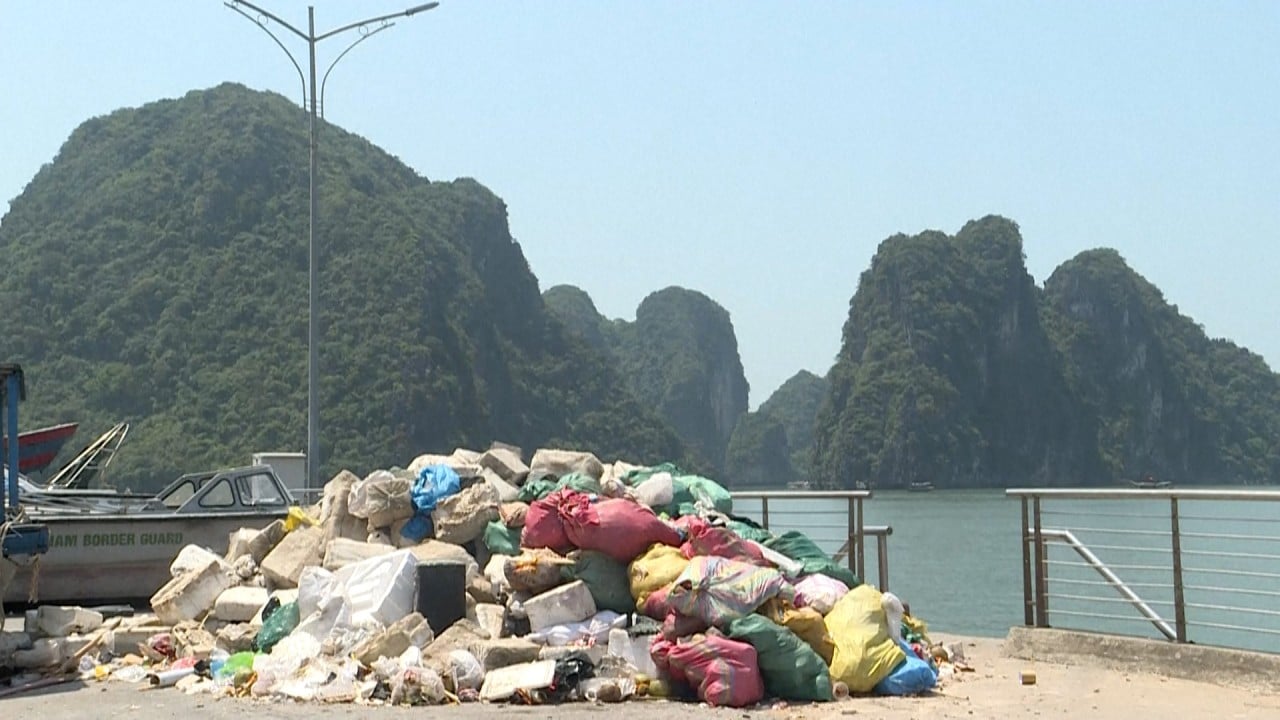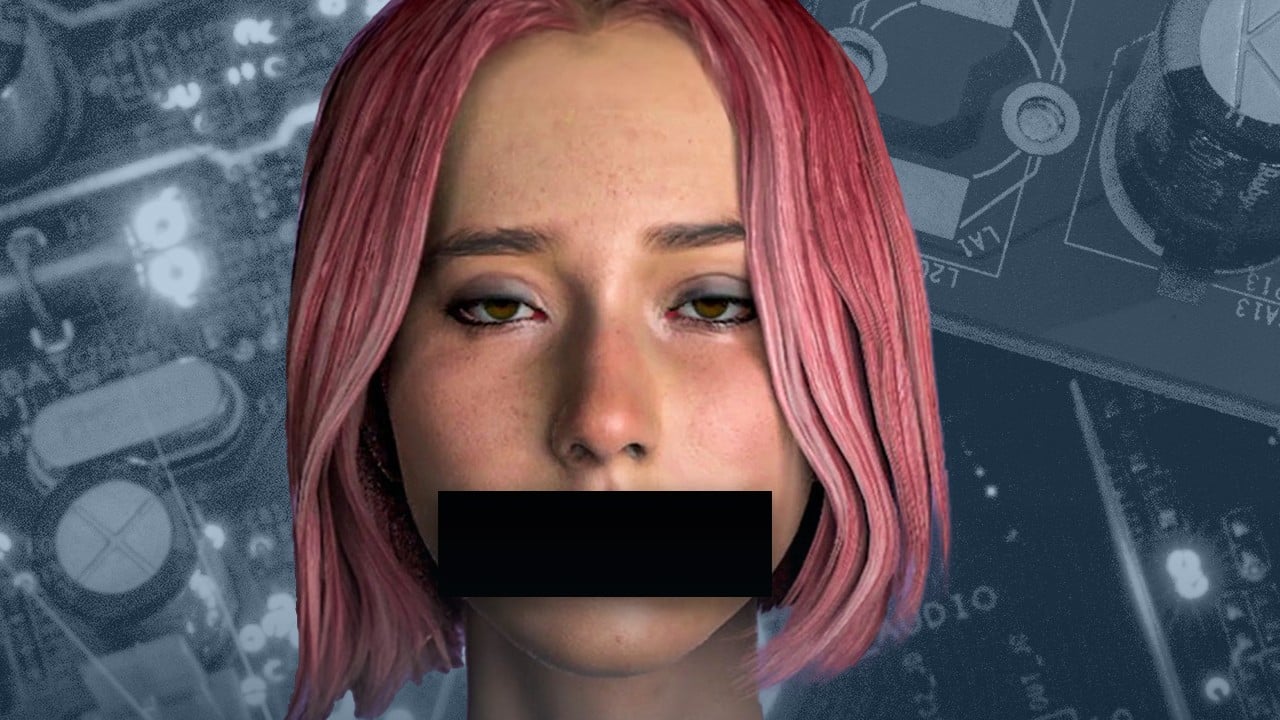
Eye on AI as US-China rivalry enters new frontier with Unesco policymaking
- China votes ‘no’ as 132 Unesco states give the green light to have the US rejoin UN cultural and science body, five years after Trump ordered exit
- Blocking China’s efforts to set global AI standards and hobble its AI ability is of strong interest to the US, observer says
Observers said the US would push back on increasing efforts by China to mould Unesco policymaking on emerging technologies, which is deemed important in shaping global regulations.
A US proposal to rejoin the body was adopted on Friday, with “a very large majority” of the 193 member states voting in favour, according to a Unesco statement.
“With this return, Unesco will be in an even stronger position to carry out its mandate,” director general Audrey Azoulay was quoted as saying.
China was among the 10 members that voted against the motion, alongside Russia, North Korea, Belarus, Iran, Eritrea, Indonesia, Nicaragua, Syria and the Palestinian representatives, while 132 voted in favour.
The Biden administration submitted a formal application to rejoin Unesco on June 8, some five years after then-president Donald Trump ordered an exit.
The US will fund the equivalent of 22 per cent of the Paris-based body’s regular budget, and also progressively repay estimated arrears of US$619 million, the statement on Friday said. Unesco’s annual operating budget is US$534 million.
John Bass, the US undersecretary of state for management, said in March that the US’ absence from Unesco was hurting the country in its rivalry with China, which has invested large sums in UN organisations.
“[If the US is] really serious about the digital-age competition with China … we can’t afford to be absent any longer,” he said.
China, which quickly became the top UN donor after the US pulled out, earlier criticised Washington’s bid to return, saying international organisations should not be used as “arenas for geopolitical competition”.
‘Peace, not division’: China warns against conflict as US regains Unesco seat
Bart Édes, a distinguished fellow at the Asia-Pacific Foundation of Canada, said: “Washington is reclaiming a seat at the Unesco table as its role in making recommendations on AI is of particular concern to the US.”
Unesco plays a critical role in leading global dialogues, publishing concept papers and providing technical advice to governments, and is expected to shape the international discussion on AI.
In early June, it published a policy paper setting norms on AI ethics to address global concerns about the lack of regulation standards, especially as OpenAI’s ChatGPT takes the world by storm.
While UN policy papers are merely advisory, they often carry a lot of weight in shaping global norms and values, and inform policymaking processes.

Édes said that taking part in Unesco and being involved in rule-setting and allocating resources offered China and the US opportunities to promote their values and interests in the international arena.
After the US said it would leave in 2017, China quickly increased its contribution and became the biggest donor the following year. Also in 2018, it successfully backed Chinese diplomat Xing Qu to serve as Unesco’s deputy director general, the No 2 rank in the organisation.
The changes came as China sought a bigger say on global AI rule-setting. In 2019, it co-hosted with Unesco the International Conference on AI and Education in Beijing, where important figures from more than 120 member states gathered to discuss AI strategies for digital transformation.
Both Unesco and the Chinese government hailed the Beijing Consensus policy paper as a key achievement of the conference, which was hosted by China’s capital city for three years in a row.
The Beijing Consensus outlines AI-related recommendations to member states, promoting a “whole-government” to AI regulation and “giving special priority to Africa” in AI financing.
AI to be ‘driving force’ of China’s new wave, have impact on production and life
Becoming a key political and economic player in Africa has been high on China’s recent global agenda. China has also relied on Unesco’s platform to publish and promote its science agenda, such as “Made in China 2025” – a strategic plan to promote technological self-reliance and push manufacturers to decouple from US tech suppliers.
Michael Frank, a senior fellow at the Wadhwani Centre for AI and Advanced Technologies under the Washington-based think tank the Centre for Strategic and International Studies (CSIS), said blocking China’s efforts to set AI standards and constrain its AI ability was of strong interest to the US.
China has been active in international organisations that set standards for all kinds of emerging technology, from AI to 5G, and the UN is increasingly seen as a platform for Beijing to channel its global ambitions.
However, China’s aim to guide coalitions like Unesco to serve its interests might face a hurdle if the US was able to steer other major economies away from the UN system, he said.
The US can set standards among fellow democracies in blocs such as the Group of 7, the Indo-Pacific Economic Framework, the Quad, and the US-EU Trade and Technology Council – alternatives that are not available to China.
Frank said the US recognised that even by being in the room, it would be more effective at blocking China from pushing its AI agenda through the organisation.
However, Unesco had a comparatively limited role in AI rule-setting, he said. “I doubt Unesco will play a major role in settling the most important international aspects of AI, like intellectual property, weapons development, and existential risk.”
Will Beijing earn Unesco World Heritage listing for much changed old city?
Amid intensifying US rivalry and a sluggish post-Covid economic recovery, China has vowed to double down on unleashing the power of AI, hoping it will transform industries and boost growth.
“China is fundamentally miscalculating its ability to develop world-leading AI on its own,” Frank said.
Since ChatGPT went viral, many Chinese tech firms have also launched their own chatbots, but they must comply with national censorship rules.
The request from China’s top internet regulator for AI companies to use algorithms that “uphold core values of socialism” imposed significant technical limitations that would make Chinese AI firms lag behind their foreign peers, Frank said.
“Efforts to develop a domestically self-sufficient AI ecosystem, and then export AI products and services around the world after determining China-friendly standards, will not work,” he said.
“AI ecosystems are simply too complex.”



